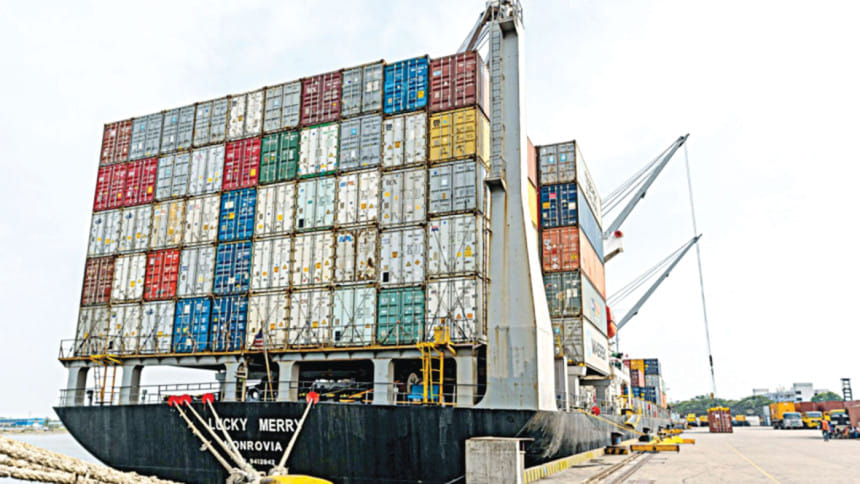Inability to repatriate export proceeds and legal remedies for exporters

In Bangladesh, most of the exporters have to rely on bank loan for procuring the raw materials essential for the production of the goods/articles to be exported. To that end, the exporters have to open BTB LC for procuring raw materials either from local or foreign suppliers. Additionally, for facilitating the export, the exporters may have to avail several credit facilities from the banks. After exporting and repatriating the foreign proceeds, the liabilities are adjusted against the said foreign proceeds. This repatriation is not only essential to generate revenue for the exporters but also to satisfy the overdue bills against the BTB LCs and other credit facilities availed for export purposes. As per the provisions of the Foreign Exchange Regulation Act, 1947 (FERA), the exporters are under a legal obligation to repatriate the foreign proceeds against the exported goods. The details of repatriating the said foreign proceeds against export are enumerated in Foreign Exchange Guidelines vol 1 [as of 31 May, 2009], Foreign exchange guideline vol 2 [as of July 31, 2010]- both issued by Bangladesh Bank.
However, over the past few years especially during the world recession and recently for the ongoing pandemic, many Bangladeshi exporters have not been able to repatriate foreign proceeds against export due to insolvency/bankruptcy of the foreign importers or refusal to accept exported goods and make payment by the foreign importers, or for any other situations beyond control. Many exporters have suffered immense loss by failing to repatriate export proceeds. Finding no other alternative and to minimise their losses, many of such exporters were forced to part with considerable amount of export value by receiving discount payment or nominal amount. A total of 32 Bangladeshi garments exporters filed suit against the renowned American brand 'Sears' for unjust cancellation of huge volumes of orders. The Court allowed the suit but the affected exporters have received only $6.3 million against the cancelled orders of $40 million where the exporters had already shipped the products worth $22.7 million.
If the foreign proceeds from export are not repatriated in due time or the repatriated amount is less than export value, the issuing banks, in order to discharge their obligations, make the payment against the said BTB LCs and adjust other credit facilities, if any, by creating forced loans against such exporters. These derive the exporters towards unrecoverable losses i.e. on the one hand they loss the export proceeds and on the other hand they have to repay the forced loans along with interests created by the banks.
Under Section 23 of the FERA, non-repatriation or partial repatriation is also a punishable offence. At the same time, the lender bank in order to recover the loan amount (created for export purposes) may take several legal actions against such exporters i.e. selling or taking control and possession of the mortgaged and hypothecated properties, shares etc., listing the name of the exporter along with guarantors as defaulters in the CIB list of Bangladesh Bank, filing Artha Rin Suit under Artha Rin Adalat Ain, 2003, cheque dishonour case under Negotiable Instruments Act, 1881, and more aggressively criminal cases under Penal Code, 1860 for breach of trust, cheating, and others.
Now the question is what legal remedies are available to the affected exporters in case of non-repatriation of foreign proceeds as such. Bangladesh Bank has the legal authority to exempt the affected exporters from the liability to repatriate the foreign proceeds by exercising the powers under Section 12 (2) (b) of the FERA. In recent times, due largely to the pandemic, it is often seen that the foreign buyers refuse to accept the exported goods after the same reach the port of the buyer. In that case, the BB, exercising the power under section 12 (3) of the FERA, may permit the affected exporters to sell the exported goods from the port of the buyer's country and procure the sale proceeds accordingly. In this way, the affected exporter may have the opportunity to sell his exported goods to some persons or entities other than the original buyer by way of 'offshore selling' or through any other convenient way. Even after that, if the affected exporters fail to sell the exported goods, upon request of the exporters, the BB has the authority under Section 12 (3) of the FERA, to direct that the goods be assigned to the Government. If any such assignment is made to the Government by BB, the Government is under a legal obligation to pay such amount to the affected exporters after selling the assigned goods under Section 12 (4) of the FERA. BB also has the legal authority to take protective and facilitative initiatives to protect the lender bank, Authorised Dealer (AD) bank and affected exporters by exercising its regulatory powers under Sections 45 and 49 of the Bank Companies Act, 1991.
Morever, an affected exporter who has not managed to repatriate the export proceeds, has other available legal recourses too. If the 'Sale Contract' contains any provision empowering either of the parties to invoke the jurisdiction of any court to appoint arbitrator and enforce the arbitral award, then the affected exporter can file an application before the empowered court to appoint an arbitrator and to enforce the arbitral award, if any. Such affected exporter may also file civil suit for realisation of export value along with compensation and interests as well as criminal case for criminal breach of trust against the local agency of the buyers, if any, in exporter's country. The exporters may also file lawsuit against the buyers to recover the overdue export amount in the courts of buyer's country.
The writer is Advocate, Supreme Court of Bangladesh.

 For all latest news, follow The Daily Star's Google News channel.
For all latest news, follow The Daily Star's Google News channel. 



Comments